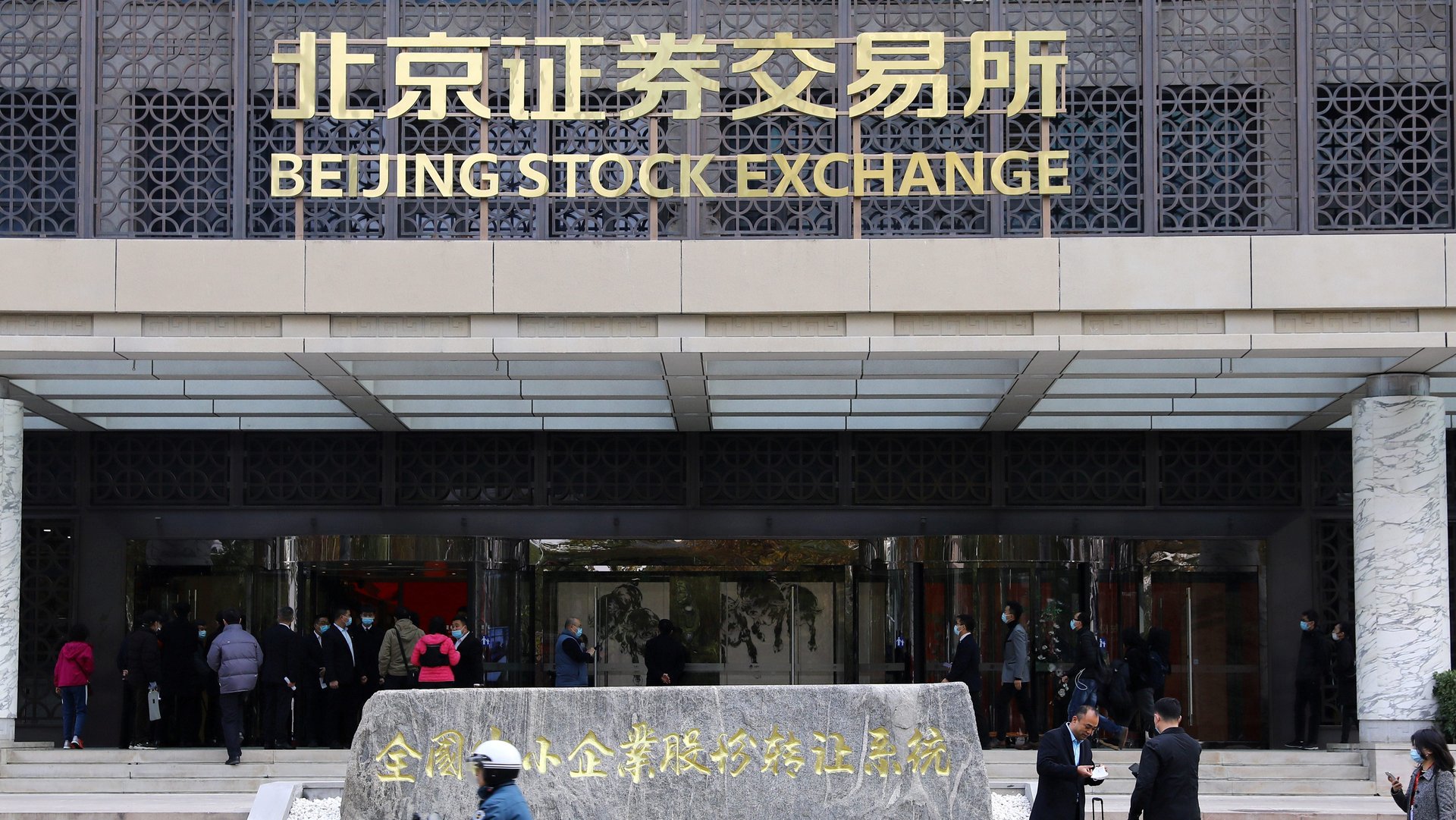China’s newest stock exchange follows Xi Jinping’s cues for the economy
It took only 75 days for the Beijing Stock Exchange to go from a vague plan announced by Chinese president Xi Jinping in early September to an official opening today in the Chinese capital. The speed with which the bourse was launched has been hailed by Chinese state media as an illustration of the country’s determination to help small to medium-sized innovative companies raise funding.


It took only 75 days for the Beijing Stock Exchange to go from a vague plan announced by Chinese president Xi Jinping in early September to an official opening today in the Chinese capital. The speed with which the bourse was launched has been hailed by Chinese state media as an illustration of the country’s determination to help small to medium-sized innovative companies raise funding.
Among the 81 companies listed on the board today, 71 were transferred from the New Third Board, a Beijing-based over-the-counter marketplace for companies not listed in the exchanges in Shanghai and Shenzhen, the country’s two other stock exchanges. While the performance of the transferred stocks was mixed, shares of the 10 newly listed companies surged between 100% to 500%, according to financial magazine Caijing.
The exchange has a high concentration of companies in advanced manufacturing and services, such as engineering equipment making, a direction that is in line with Xi’s repeated emphasis that China needs to focus on developing its manufacturing prowess to better serve the real economy and ensure wider prosperity. Car transmission device maker Henan Tongxin Transmission, for example, surged the most with a rough 493% increase in its share price, leading to a temporary trading suspension. Overall, companies from the industrial equipment sector represent the largest group on the bourse, followed by firms in biotech and computing, according to Chinese media.
In contrast, China’s once much-anticipated Shanghai STAR market dedicated to tech darlings has seemingly lost much of its shine after the abrupt suspension of Ant Group’s IPO last year, the start of a regulator storm unleashed against China’s tech giants.
Despite the relatively small scale of the new exchange—according to Reuters, the volume of trading today was the equivalent of about 1% of trading in Shanghai and Shenzhen combined—its launch once again indicates China’s intention to entice ambitious startups to list at home.
In July, China’s cyber administration issued draft rules that could require companies with over 1 million users’ data to go through a security check before listing overseas, prompting a flurry of firms to shift their focus from the US to Hong Kong, which many believed might be exempted from the scrutiny. But the watchdog’s revised draft rules published yesterday now say that companies listing in Hong Kong could also be required to go through the checks if they are deemed as potentially having an influence on national security.
It seems China’s aspiring Alibabas and Tencents will face a listing environment far tougher than the one that existed for their more established rivals—which could affect their ability to raise funds and thrive in the first place.